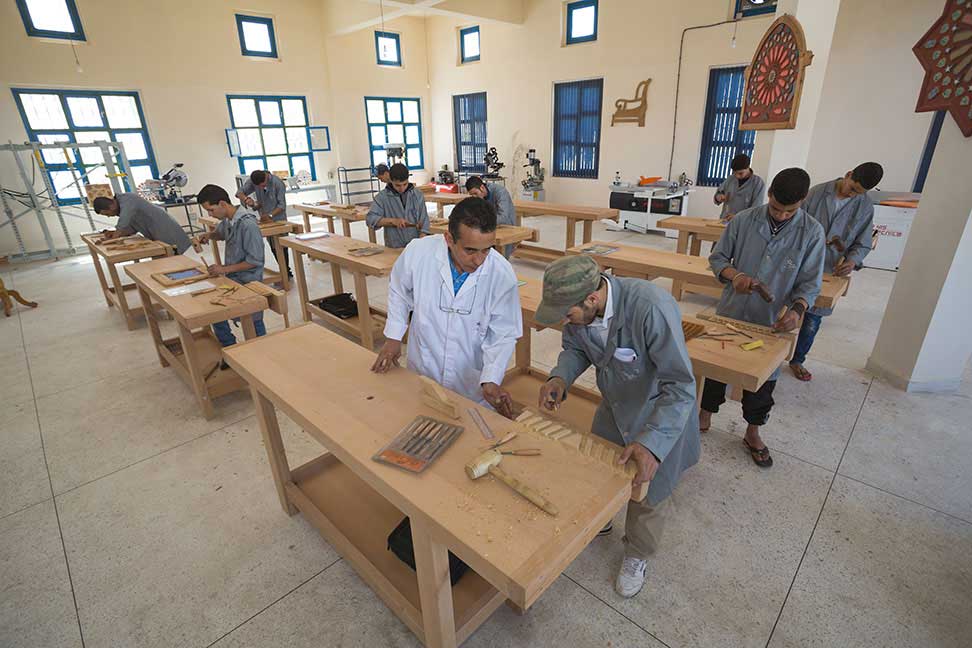Program Overview
MCC’s $650.1 million Morocco I Compact (2008-2013) funded the $84 million Artisan and Fez Medina Project. The project aimed to raise artisan sales and incomes by training potters and subsidizing gas kiln purchases; promoting artisan businesses by participating in trade fairs and tourist circuits and creating a national label for Moroccan handicraft; training and rehabilitating work sites to improve work conditions; and reconstructing historic sites to increase tourism.
Key Findings
Working Conditions and Historic Sites
- Artisans reported improved air quality in the new Ain Nokbi fondouk—a multi-story structure surrounding a courtyard—after completion of the site construction where air extraction and filtration systems were installed.
- The rehabilitation of Lalla Yeddouna square – which contains several arteries linking it to the medina’s urban network and has the potential for a wide range of tourism related uses – and three 14th- and 15th-century fondouks were incomplete at program end.
Training and Equipment Purchases
- 29 percent of potters reported the training shaped new product designs.
- In spite of an 80 percent subsidy by the project, only 14 percent of potters purchased a new gas kiln due to ability and/or willingness to pay the remaining 20 percent.
Promotion, Marketing, and Tourism
- 19 percent of artisans who participated in marketing and trade fairs received new orders.
- By program end date, the National Labeling pilot, which was meant to build the image of the Moroccan handicrafts brand, was not complete and artisans had not yet appended the national handicrafts label to their products.
Sales, Incomes, and Sustainability
- 45 percent of potters reported an increase in sales, but with no reported increase in export sales.
- Participating potters reported their incomes increased by an average of 9.6 percent, while no other participants reported a perceived increase in incomes.
Evaluation Questions
The final performance evaluation was designed to understand whether the training and support for equipment upgrades, marketing and promotion activities, and rehabilitation of work and historic sites:
- 1
Improved the design and construction of historic sites? - 2
Improved the quality of artisan products? - 3
Improved promotion and marketing activities? - 4
Increased tourism to Fez Medina and Marrakech? - 5
Increased artisan sales? - 6
Increased artisan incomes? - 7
What are the consequences of implementation of the Resettlement Action Plan on project-affected persons?
An additional and important question for this project was:
Detailed Findings
Working Conditions and Historic Sites
By the program end date, the construction was completed for Ain Nokbi foudouk – a new site for copperware artisans who previously operated in Lalla Yeddouna square. 60 percent of the project-affected persons declared that the Resettlement Action Plan had a positive impact on their social and economic situation. However, due to lack of completion of other reconstruction activities, Morocco had to return more than 40 million dollars to MCC due to lack of completion at program end. As of September 2013, Morocco committed to complete the rehabilitation work.
Training and Equipment Purchases
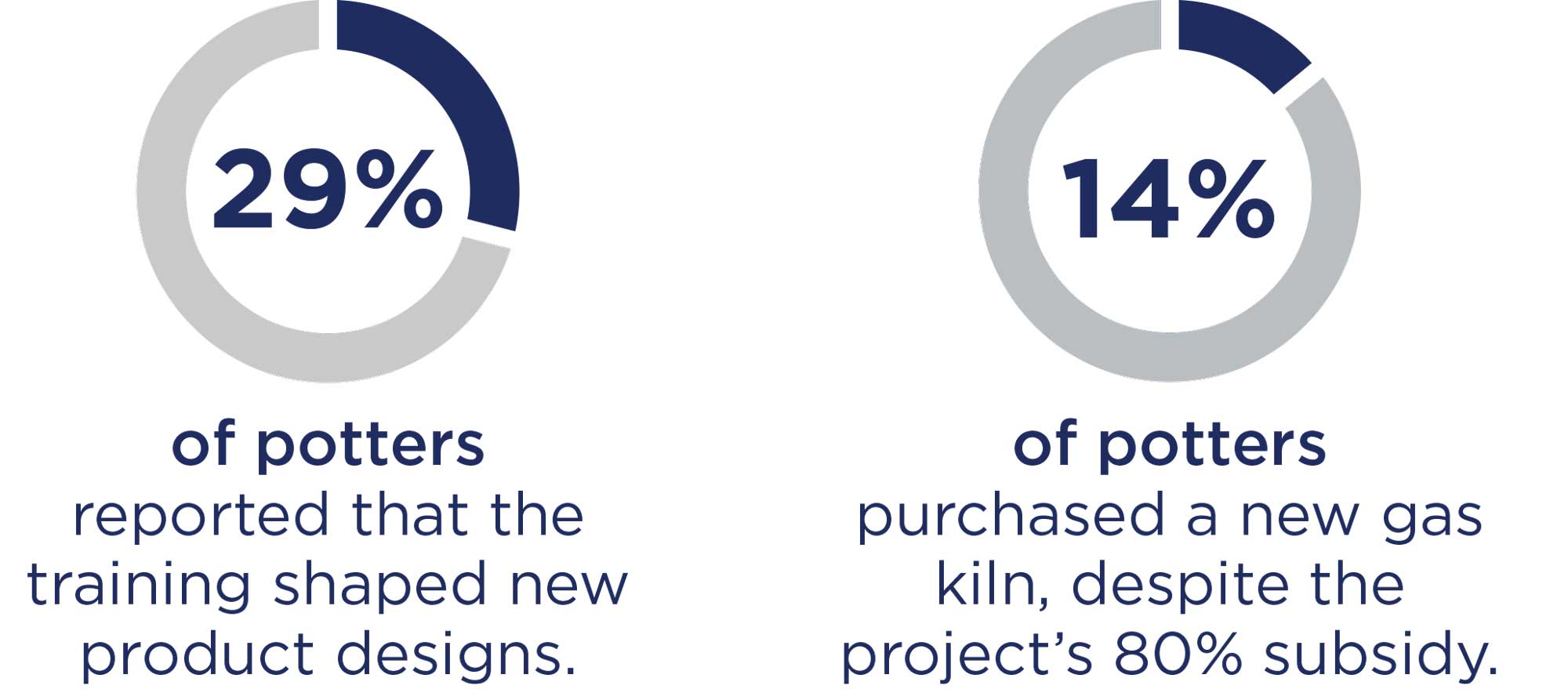
Potters reported the training sessions allowed them to get to know the associations, a collective of artisans. This in turn meant associations could bring in new members. The gas kilns promoted by the project had many advantages over traditional kilns – such as firing quality, easy usage, reduced pollution, and safety – which are important for high-end products, such as cooking pottery. However, these products account for a small percentage of the potters’ overall production and sales which may explain why so few potters purchased the kilns despite the large subsidy.
Promotion, Marketing, and Tourism

30 percent of potters reported employing new marketing practices after attending trainings. 19 percent of artisans who participated in marketing and international trade fairs received new orders. However, many reported production difficulties with meeting new orders, which supported the project's provision of training on better practices and subsidies for equipment upgrades. Lastly, due to major tourism declines in the wake of a global financial crisis, lack of a viable comparison group, and incomplete construction, tourism was not directly measured by the evaluation.
Sales, Incomes, and Sustainability
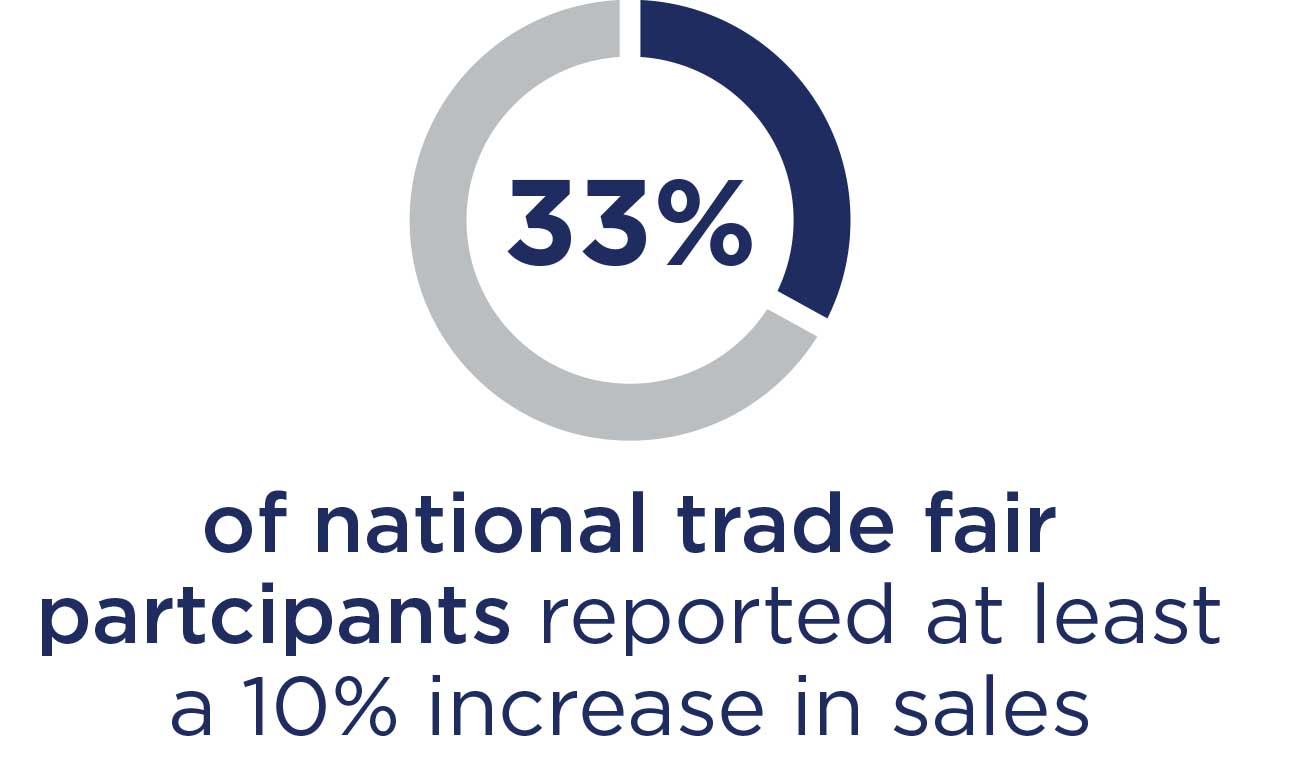
Artisans who participated in training, as well as promotion and marketing activities, self-reported a range of increases in sales from insignificant to substantial. Regarding sustainability: (i) for potters, sustainability was considered poor and it was recommended the government continue to pursue activities to help potters apply the training provided; (ii) for replacing traditional kilns with gas kilns, the creation of collectives to share the kilns (and kiln costs) was considered necessary; (iii) for the tourism circuits, a dedicated budget was considered necessary to keep the activity going; (iv) for promotional campaigns, the sustainability was considered relatively good as long as Maison de l’Artisan stayed involved.
MCC Learning
Understand project participants’ willingness and ability to pay for new equipment associated with program recommendations, such as the 20 percent contribution for gas kiln purchase, associated with program recommendations.
Construction and rehabilitation in a historic site requires skills and experience managing complex social issues such as resettlement and the creation of a business plan design for rehabilitated sites to ensure sustainability. These requirements should be built into key personnel qualifications for similar projects.
Consider how delays in implementation, particularly construction, may exacerbate unexpected adverse effects on neighboring populations that are economically linked to program areas, but are not beneficiaries of the program, and how MCC and the MCA may mitigate these effects.
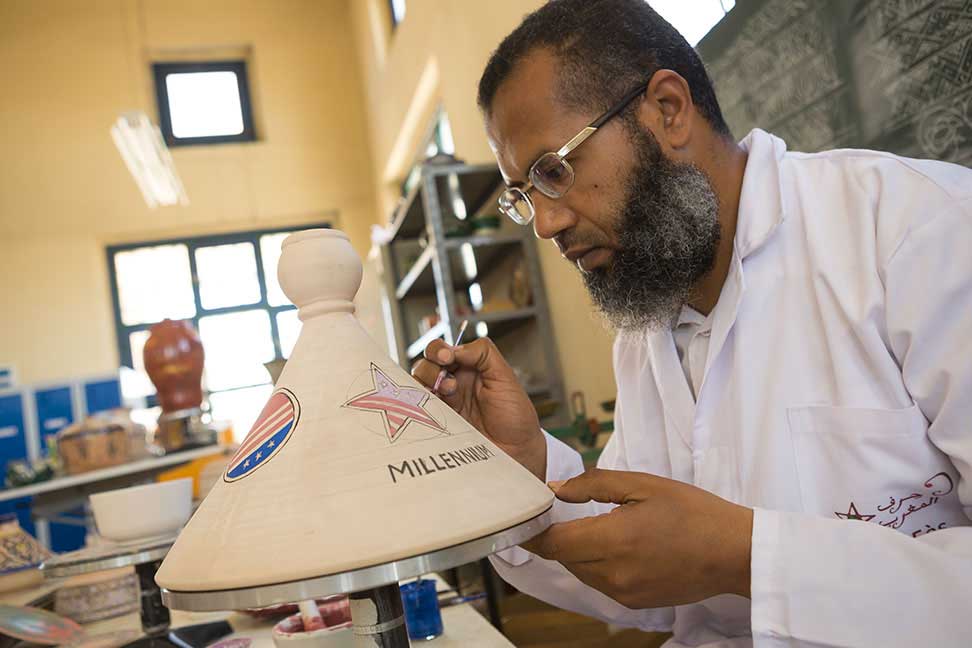
A student learning pottery at the Institute of Traditional Arts in Fez, Morocco commemorates MCC's contribution to the school with a traditional Moroccan tagine.
Evaluation Methods
Artisans targeted by the project began receiving training and support in May 2010. However, some activities, such as the National Label and historic site rehabilitation, were not complete by program end date, resulting in an exposure period between 0-42 months.
The performance evaluation of the Artisan and Fez Medina activities used an ex-post methodology relying on data collected from April – November 2013, which included:
- A quantitative survey of 70 potters (of 2332) and 100 artisans targeted by training, promotion, and marketing efforts (of 775) and 100 artisans targeted by reconstruction efforts (of 1000).
- 11 focus group discussions were performed for Artisan activities – including potters – and Fez Medina – including tourism and artisan guides and project affected persons.
- Semi-structured interviews with project implementation staff.
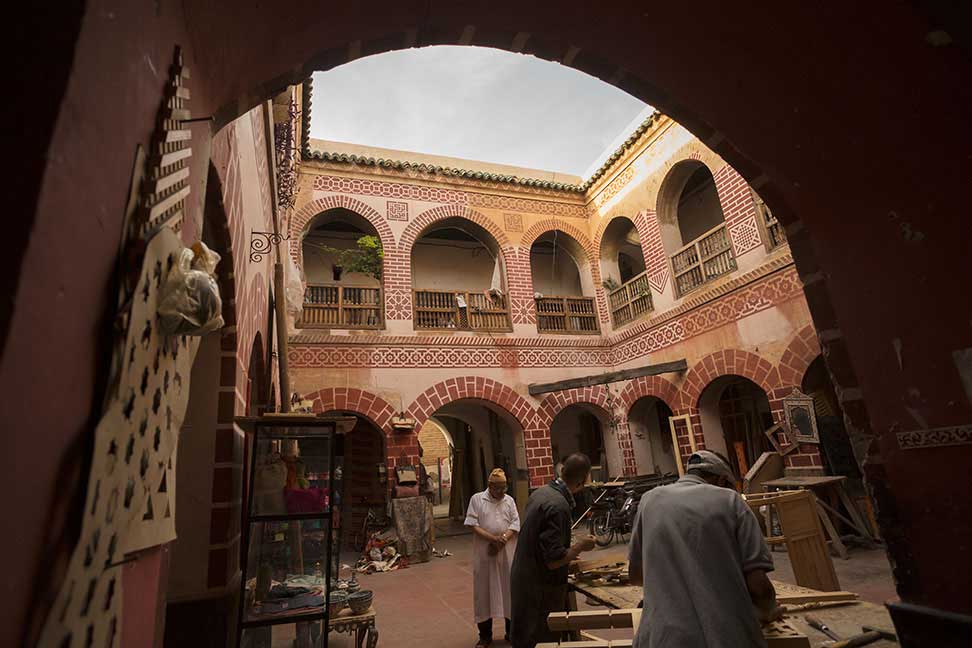
Artisans make handicrafts in a workshop in the Marrakech Medina.
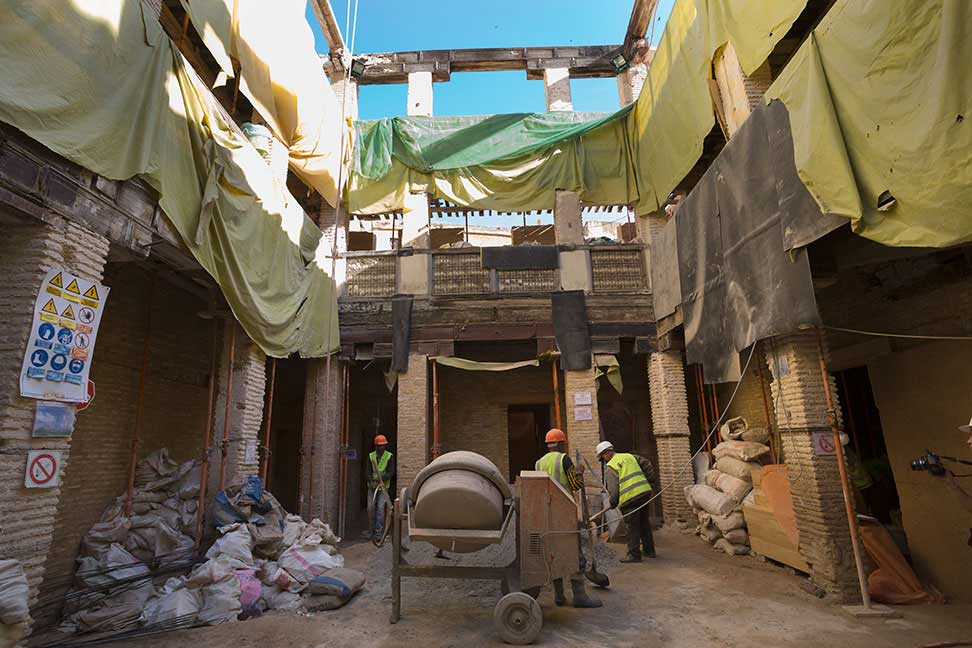
Construction workers restore an old historical site in the old Medina of Fez, Morocco.
2020-002-2369


